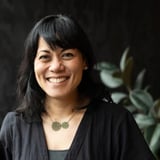Summary
We often hire researchers from a wide range of backgrounds. Most of the time, we need to hire fresh grads, interns, or market research experts. For these individuals with little practical experience in product/UX research and a non-research education background, we must bridge a skill gap. Yoel will talk about his experiments with a variety of ways for boosting the skills of his researchers. He'll talk about the framework he's built, as well as the advantages and disadvantages of each learning project he's tried.
Key Insights
-
•
Research teams with limited experience often overemphasize scientific rigor, hindering learning compared to design teams.
-
•
Designers use a more flexible notion of rigor based on intuition, feelings, and real-time collaboration.
-
•
Stolterman’s concept of design rigor is better suited to the complexity of design research than strict scientific rigor.
-
•
Schön’s knowing-in-action highlights intuition and reflection as core to developing professional skill and rigor.
-
•
Reflection-in-action is a five-step process helping practitioners improve their intuition through surprise and experimentation.
-
•
Dewey emphasizes learning by doing and demonstrating, not just verbal instruction, as essential for effective skill transfer.
-
•
Yohael’s Three Rs framework (Recount, Relate, Reframe) structures reflection on intuition in research practice.
-
•
Pair research and 1:1 sessions incorporating demonstration and imitation improve learning and confidence in research teams.
-
•
The perceived discrepancy between research and design team performance was due more to learning practices than stakeholder bias.
-
•
Inclusive learning frameworks can reduce impostor syndrome and expand access to design research beyond traditional academic pedigrees.
Notable Quotes
"Researchers were obsessed with scientific rigor while designers used balance, feelings, or intuition as their rigor."
"Design research faces design complexity, which deals with the specific, intentional, and the non-existing."
"Knowing in action is the intuition practiced by competent designers, a core of artistry."
"Reflection in action involves noticing surprise, questioning assumptions, experimenting, and reflecting on the move."
"Students cannot be taught what they need to know; they can only be coached to absorb it through demonstration."
"My research team focused too much on scientific rigor, while design teams improved intuition with reflection and demonstration."
"Designers adhere to standards not scientific ones, but design rigor tailored to dealing with complexity."
"Our learning framework does not prescribe but supports reflection in action and demonstration or action."
"The wrong learning pedagogy might be fueling impostor syndrome among design researchers."
"We should open our profession to fresh graduates and those without traditional design research backgrounds."
Or choose a question:
















More Videos

"If we haven’t defined and branded ourselves, others will—and others could be wrong."
Molly FargotsteinMultipurpose Communication & UX Research Marketing
September 12, 2019

"Agile was built for speed and recovery but often misses depth, purpose, and vision needed for design."
Dave MaloufClosing Keynote: Amplify. Not Optimize.
October 24, 2019

"You want to be very clear about what was generated by AI and what is your own stuff in your notes."
Jorge ArangoAI as Thought Partner: How to Use LLMs to Transform Your Notes (3rd of 3 seminars)
May 3, 2024

"The AI is looking through material and that material’s changing every day."
Daniel J. RosenbergDesigning with and for Artificial Intelligence
August 11, 2022

"Automation only catches maybe 30% of all your a11y defects and even then we still receive a lot of false positives."
Alexis LucioScaling Accessibility Through Design Systems
June 9, 2022

"We created a Slack bot that automatically created tickets from UX bug reports to help design managers discover issues faster and track recovery time."
Peter BoersmaHow to Define and Maintain a DesignOps Roadmap
October 3, 2023

"Designers act as mediators and neutral parties to get stuck projects unstuck through design diplomacy."
Ben Reason Aline Horta Majid Iqbal Fabiano LeoniMaking the system visible: The fastest path to better decisions
November 20, 2025

"People forget the expertise every seven years and have to learn everything again—this bot helps make that expertise accessible."
Peter Van Dijck Louis RosenfeldCoffee with Lou #4: Taking a Peek Under the Rosenbot's Hood
June 14, 2024

"In a remote environment, building authentic, deep relationships with stakeholders is a key skill for researchers."
Taylor KlassmanShaping the Next Era of UX Research: Collaborative Forum
March 11, 2025
















